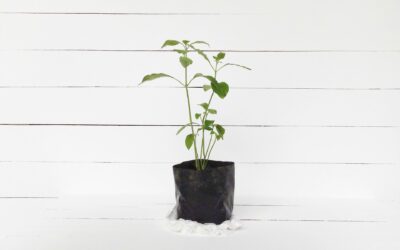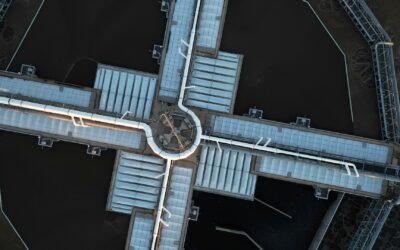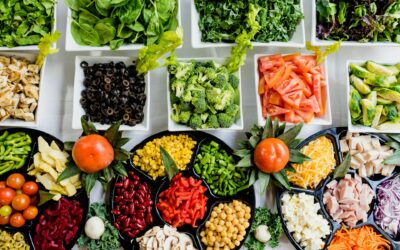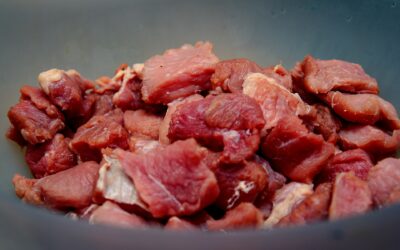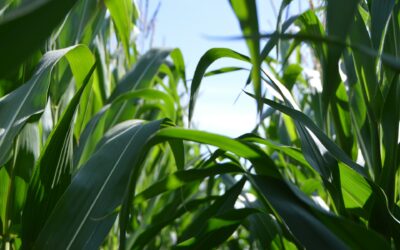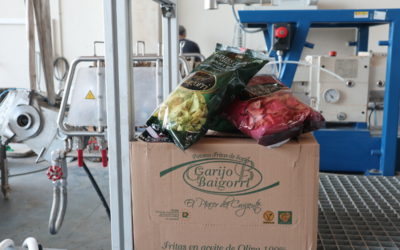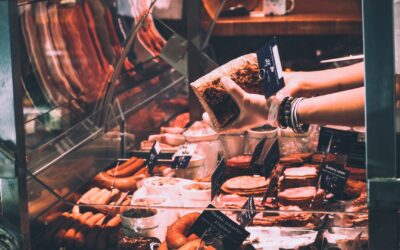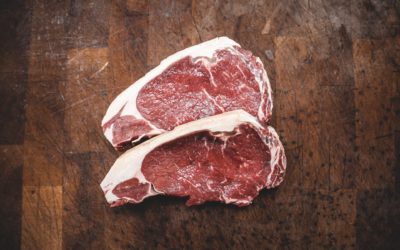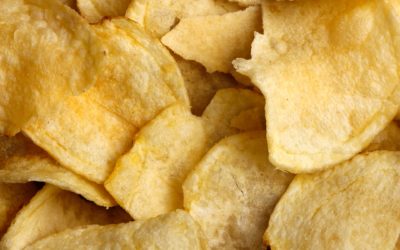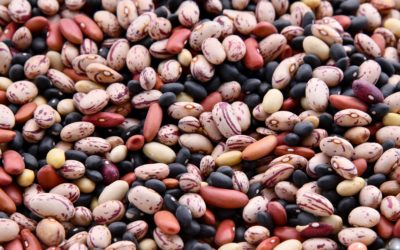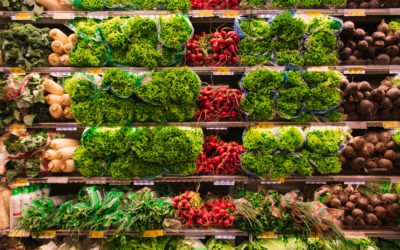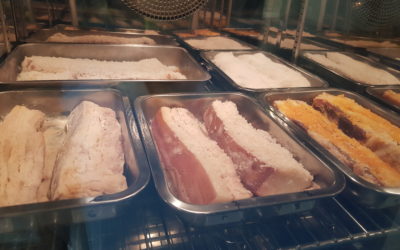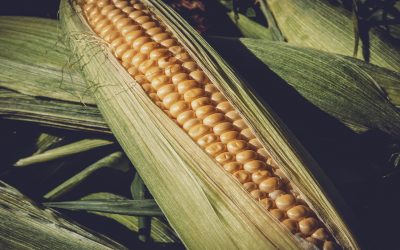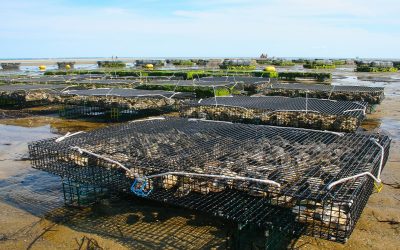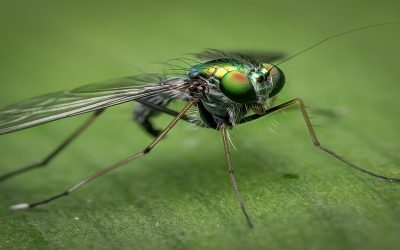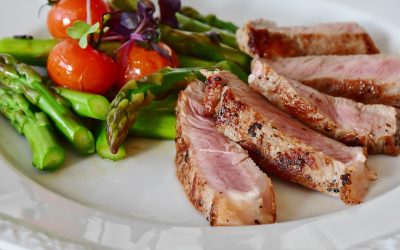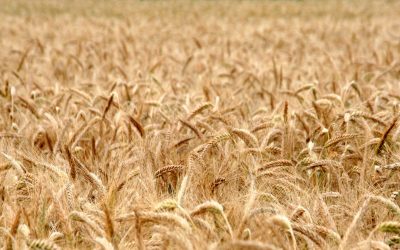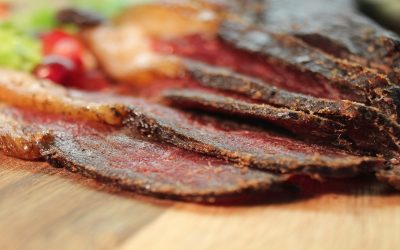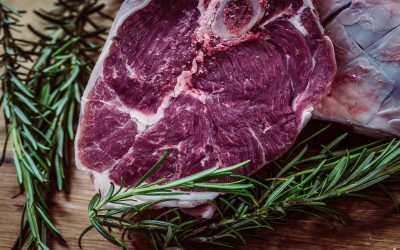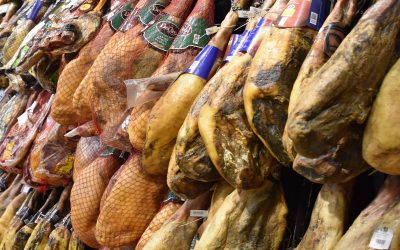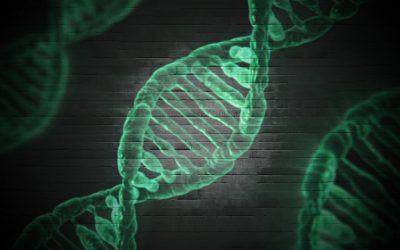CARTIF Projects
FUSILLI
Fostering the Urban food System transformation through Innovative Living Labs Implementation
Description
FUSILLI Project (Fostering the Urban food System transformation through Innovative Living Labs Implementation) focuses on supporting cities to facilitate their transition towards more sustainable food systems, in line with the FOOD2030 priorities.
To this, FUSILLI combines the expertise of 34 partners from 13 countries, inlcuding cities, universities, SMEs, NGOs and industries.
The foundation of FUSILLI will be the 12 Food 2030 Living Labs an open innovation ecosystem sited in 12 cities with the objective to implement different innovative actions through all stages of the food chain, including production and processing, distribution and logistics, consumption, food loss and waste as well as governance.
Objectives
- The core ambition of FUSILLI is to overcome barriers for developing and implementing integrated, systemic food policies that support the transition toward sustainable food systems in urban, peri-urban and nearby rural areas.
- To this FUSILLI puts 12 cities in a knowledge sharing and learning network to address the challenges of the food system transformation: San Sebastian (Spain), Nilufer-Bursa (Turkey), Oslo (Norway), Kolding (Denmark), Turin (Italy), Castelo Branco (Portugal), Differdange (Luxemburg), Rijeka (Croatia), Kharkiv (Ukraine), Tampere (Finland), Athens (Greece) and Rome (Italy).
Actions
- To create a methodology to establish Living labs as cooperation spaces.
- Implementation of Living labs in 12 involved cities.
- Definition and establishment of a Knowledge Community.
- Establishment of urban food planning with special attention to the urban and rural links.
Expected Results
- Creation and management of real-life experimentation spaces of innovaive solutions “Food 2030 Living Labs” and evaluation of their impact.
- Creation of a Knowledge community with past and present activities of food policie and ractices that acts as a support for policy makers.
- Policies and actions implementation for an urban food plan.
- Creation of innovative business models which facilitate the replicability in other cities.
Partners
CARTIF is responsible for the coordination of this project and will be in charge of the tasks of generating the evaluation model for the actions implemented in the Living Labs, as well as the analysis of the impact derived from the implementation of these actions.
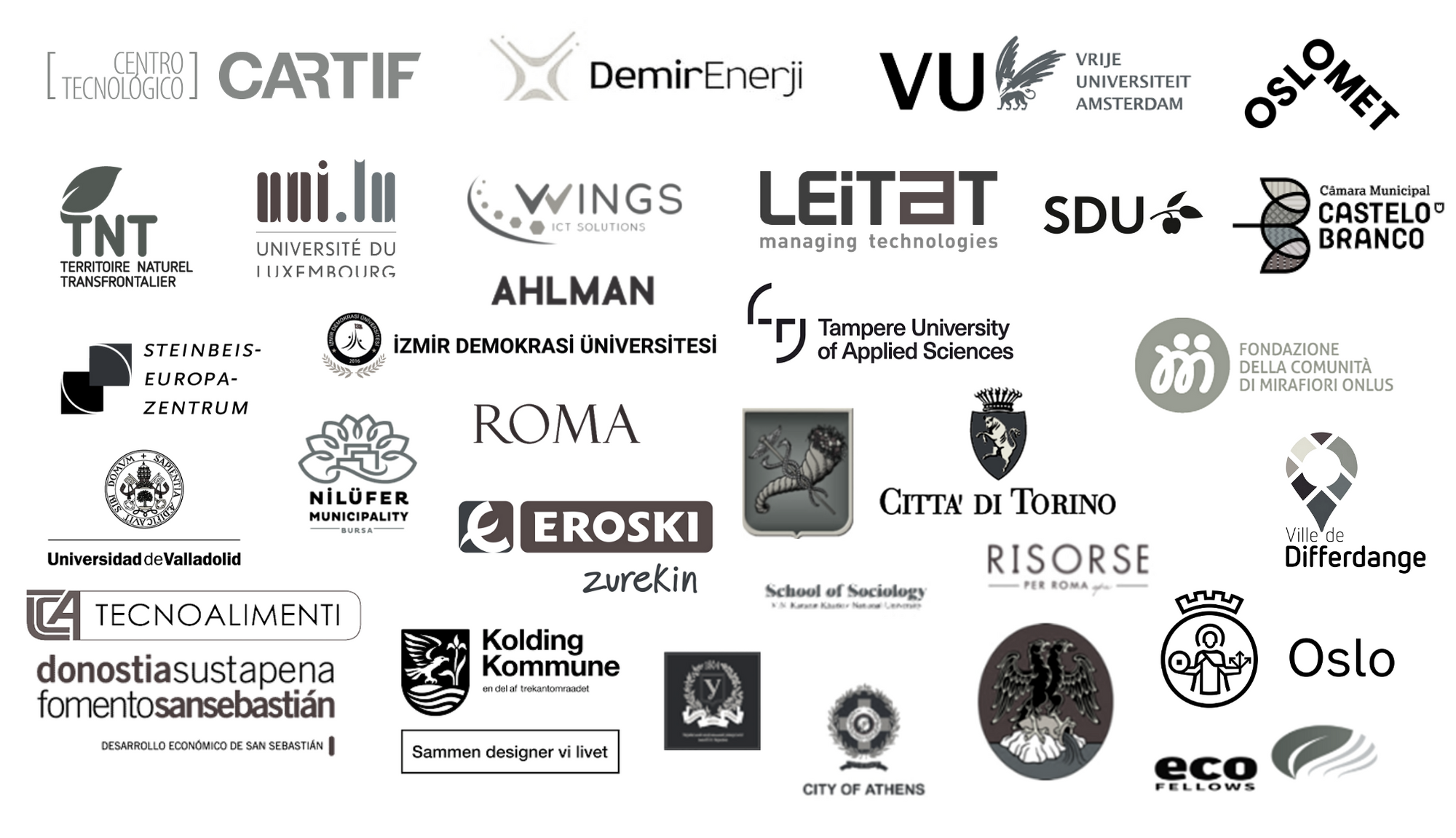
H2020
CE-FNR-07-2020 FOOD 2030 – Empowering cities as agents of food system transformation
No.101000717

Total elegible costs: 12,796,056.25 €
CE Contribution: 12,160,305.63 €
Duration: 01/01/2021 – 31/12/2024
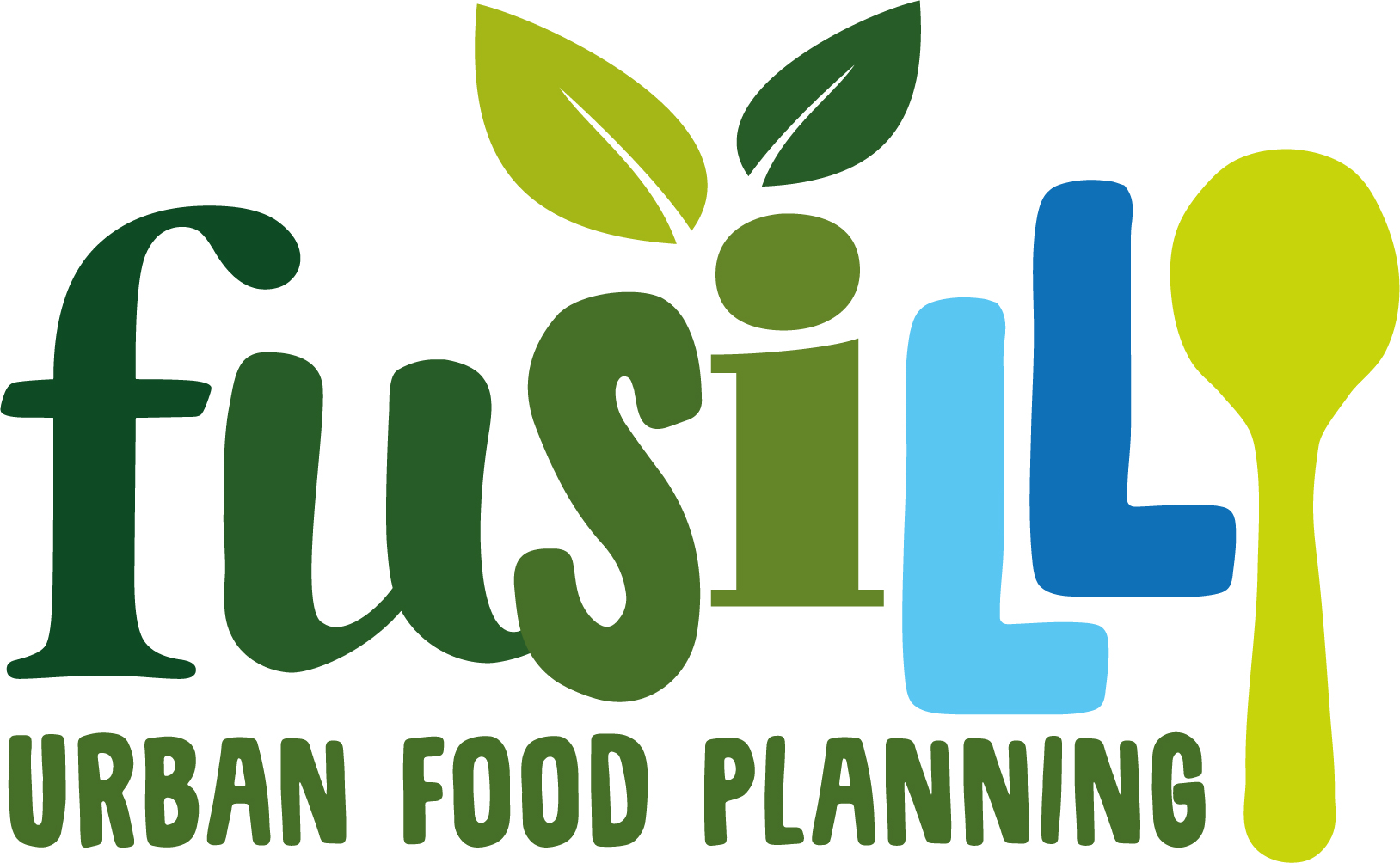
Responsible
Belén Blanco Espeso
Agrofood and Processes Division
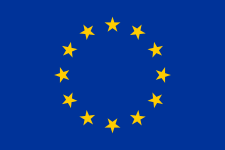
This project has received funding from the European Union´s Horizon 2020 research and innovation programme under grant agreement No.101000717
Networking
Food projects:
Controlled Environment and Plant Health Pilot (PAC-SAVE)
CARTIF ProjectsPAC-SAVEControlled Environment and Plant Health PilotDescriptionCARTIF's PAC-SAVE project aims to develop a Controlled Environment and Plant Health Pilot to investigate the resilience of crops and forests to climate change. Through advanced technologies...
Waste treatment for energy and material recovery in industrial processes
Increase the extractability of protein sources and other compounds of nutritional interest, naturally present in by-products generated in the transformation processes of the food industry, through the use of “green technologies” of pre-treatment such as extrusion
High-pressure processes for the generation of high value-added products
Increase the extractability of protein sources and other compounds of nutritional interest, naturally present in by-products generated in the transformation processes of the food industry, through the use of “green technologies” of pre-treatment such as extrusion
Advanced technologies for the development and characterisation of 3S food: healthy, sustainable and safe
Increase the extractability of protein sources and other compounds of nutritional interest, naturally present in by-products generated in the transformation processes of the food industry, through the use of “green technologies” of pre-treatment such as extrusion
VALORA-0
VALORA-0 is focused on the valorization of waste currents of CAMPOFRÍO FOOD GROUP.
CARNIVAL
CARNIVAL aims to generate new scientific and technological knowledge to create added value for waste and by-products from the meat sector, particularly in the sheep and pig sectors.
Study of the use of alternative protein sources from agro-industrial by-products.
Increase the extractability of protein sources and other compounds of nutritional interest, naturally present in by-products generated in the transformation processes of the food industry, through the use of “green technologies” of pre-treatment such as extrusion
GARNOVA
GARNOVA born as a response to gorwing cosumer demand for healthier snacks. Sugggests the development of a new range of innovative snacks, elaborated as of healthy, functional and with high content in essential macro and micronutrients.
CARNIQUS
CARNIQUS aims to respond to the current needs of the meat sector in terms of meticulous control of those parameters directly involved in the deterioration of its products.
NOVACARNI
NOVACARNI project aims to contribute to the production of a new meat food with a lower environmental impact, in order to promote the production of healthier and more environmentally friendly food.
MITIGACRYL
MITIGACRYL has as objective develop a quick and precise analytic method for the determination at the production line of the acrylamide levels through mid-near infrared technologies.
MEATING PLANTS
Explore new vegetable protein sources, mainly native legume species from Castilla y León region which, together with the inclusion of agri-food by-products and by means of using technologies such extrusion cooking and texturization, allow the generation of innovative and alternative-to-meat products with nutritional, functional and imporved organoleptic characteristics.
IN-PACT
IN-PACT will study the sustainable innovation and innovative practices among the agri-food supply chain in the european union, to respond to how we are in the transition trend towards a more sustainable food system.
COLOR
The “COLOR” project is a collaborative business initiative aimed at providing solutions to one of the most important needs of the food sector today: the reduction of acrylamide in industrially processed foods.
NUTRIBER
Application of new technologies on the development of a nutritionally improved iberian bacon. Reducing the sodium content in the formulation and limiting nitrites/nitrates.
INBEC
INBEC Project try to promote and develop a sustainable economy through innovation and business cooperation. To this end, it is proposed to use a methodology that maximizes the potential of the Bioeconomy.
GO INPULSE
The INPULSE Operating Group (GO_INPULSE) was created to strengthen the cultivation of legumes in Spain and reduce the external dependence of protein for feed through the joint work of different actors.
ALTERNFEED
ALTERNFEED aims to obtain sustainable alternatives to the use of fishmeal and fish oil or Krill in the manufacture of aquaculture feed giving added value to several alternative ingredients at the same time, in order to take advantage of the characteristics of each and its synergies.
GO INSECT
GO_INSECT investigate the possibilities of insects as a source of alternative and sustainable protein for food and identify the necessary requirements that ensure the technical-economic viability of projects related to industrial breeding of insects
PRIMICIA
The progress of studies in this area, will allow to specify diets based on the specific requirements of each person and will allow to determine a personalized nutrition for populations with common characteristics, particular groups and individuals
PROALI
The PROALI Project develop the application of new technologies for food development, searching for opportunities in new matrices that can be used for the formulation of flours aimed at groups of young people, focusing on gluten-free raw materials.
CRUCAMI
The CRUCAMI project develops and formulates new snacks and meat products cooked from beef jerky.
The objective is the launch of new snacks and cooked meat products pastrami type from cecina.
CIEN PROGRESO
The CIEN PROGRESO Project develop innovative solutions for protein processing and its application in new food products adapted to population groups with specific needs.
INNOLIVO
INNOLIVO uses new technologies and processes for the development of innovative olivar products intended for new international markets of high added value
CAMPOFRÍO
The CAMPOFRÍO project studies and develops a process for reducing salt content in cured ham. Development of a salt content evaluation system in sliced cured ham with on-line NIR technology.
DINAMO
The DINAMO project is responsible for the development and validation of nanocapsule and nanostructure production technologies of active molecules with functional properties for food use.
